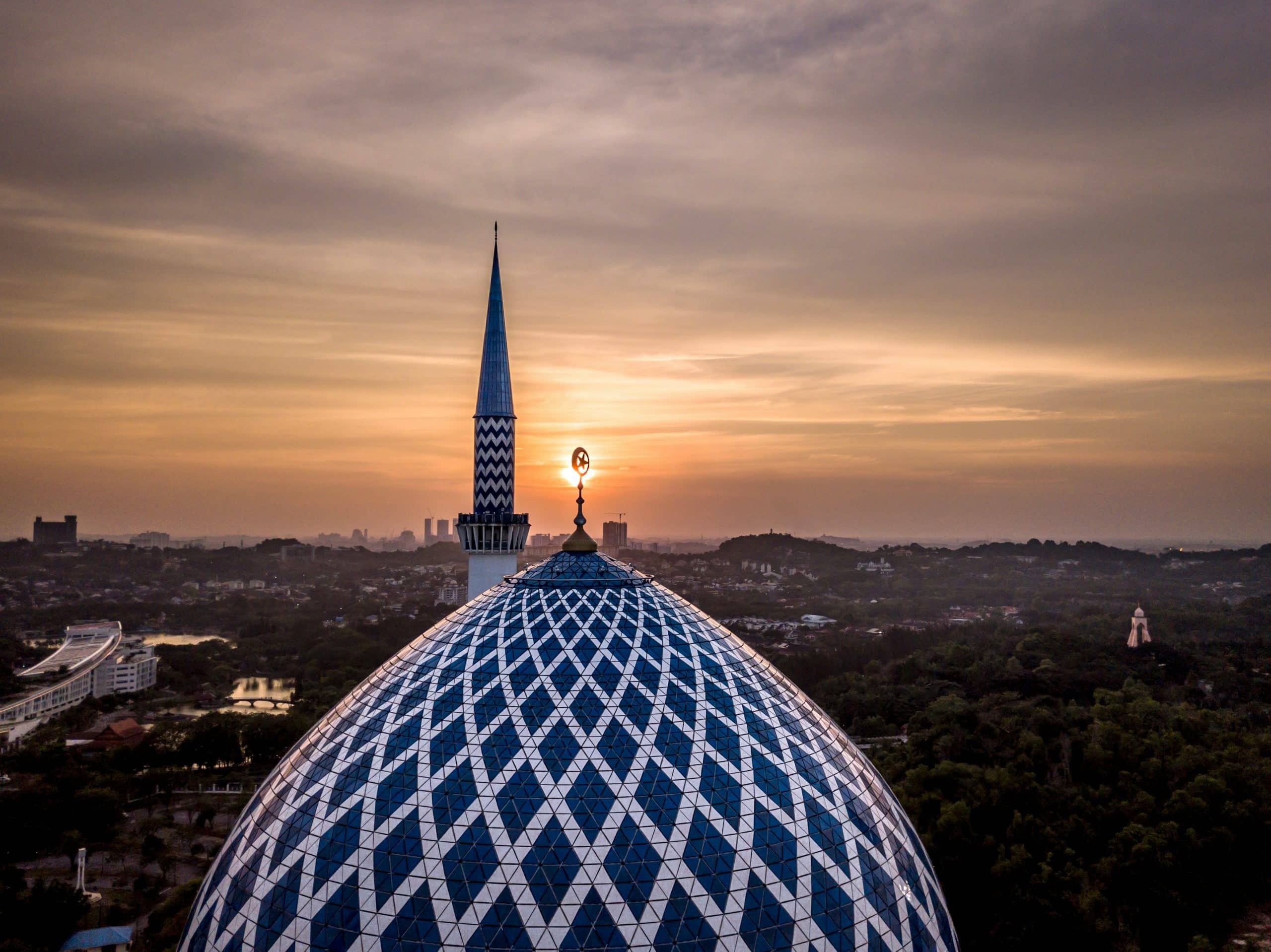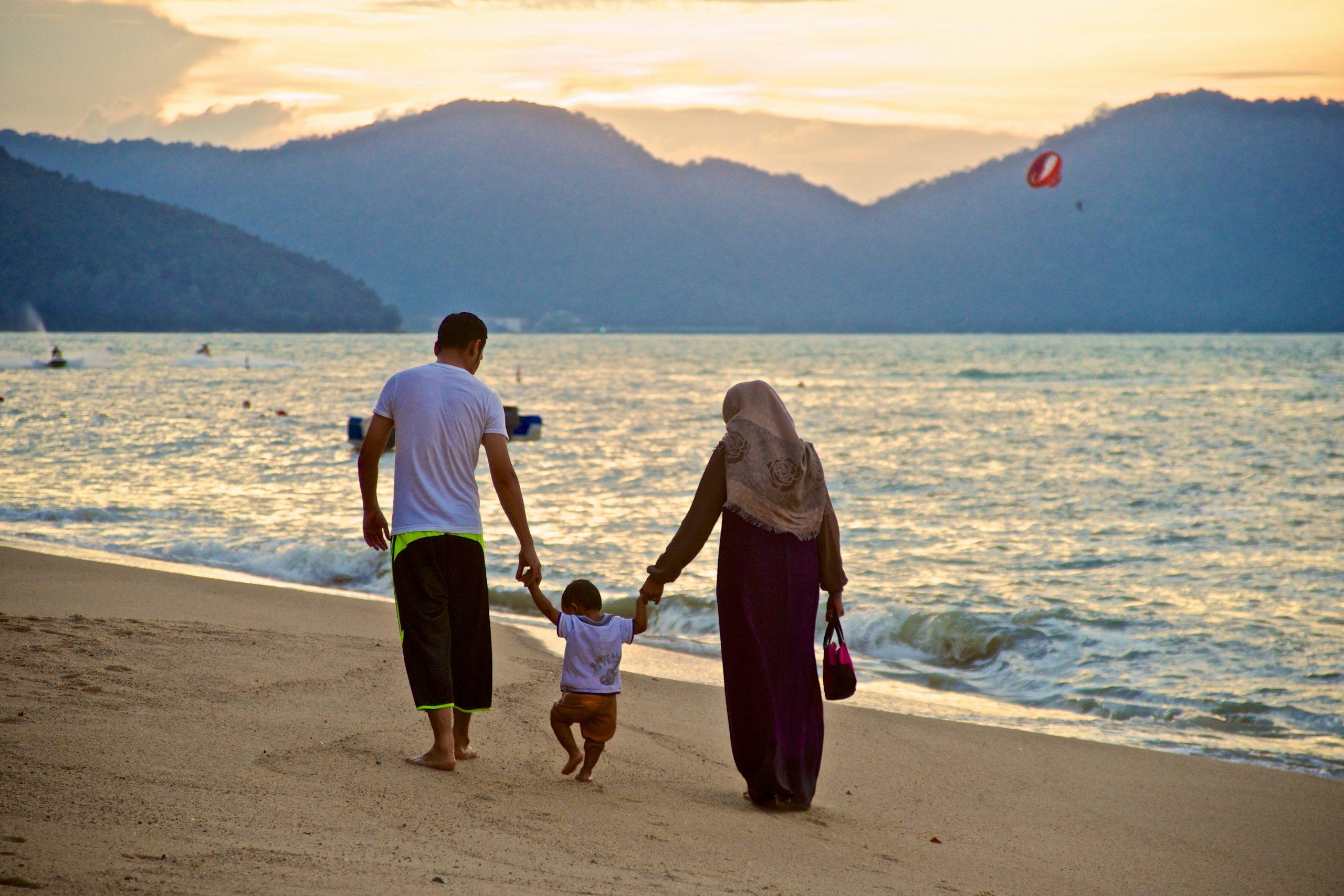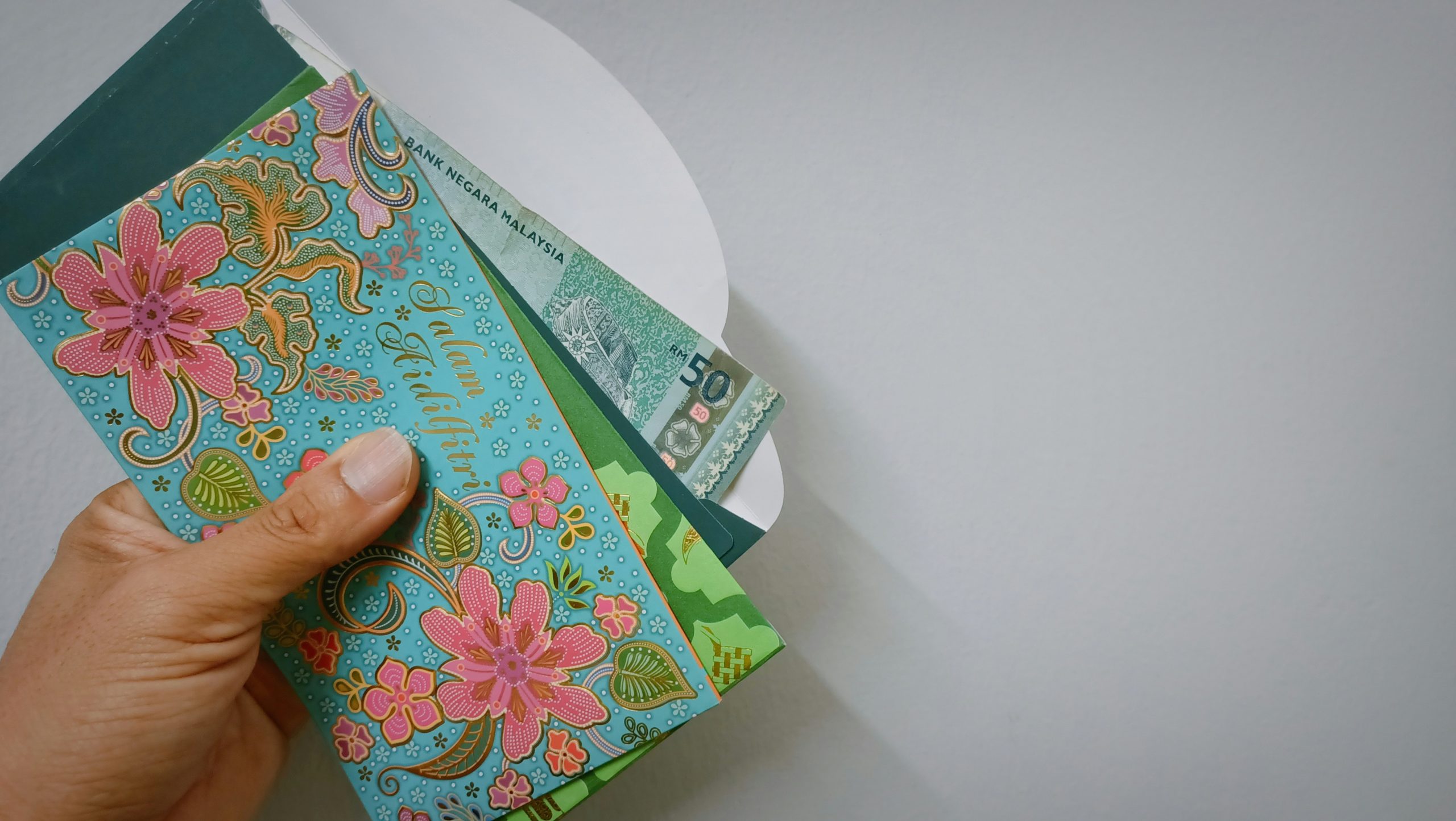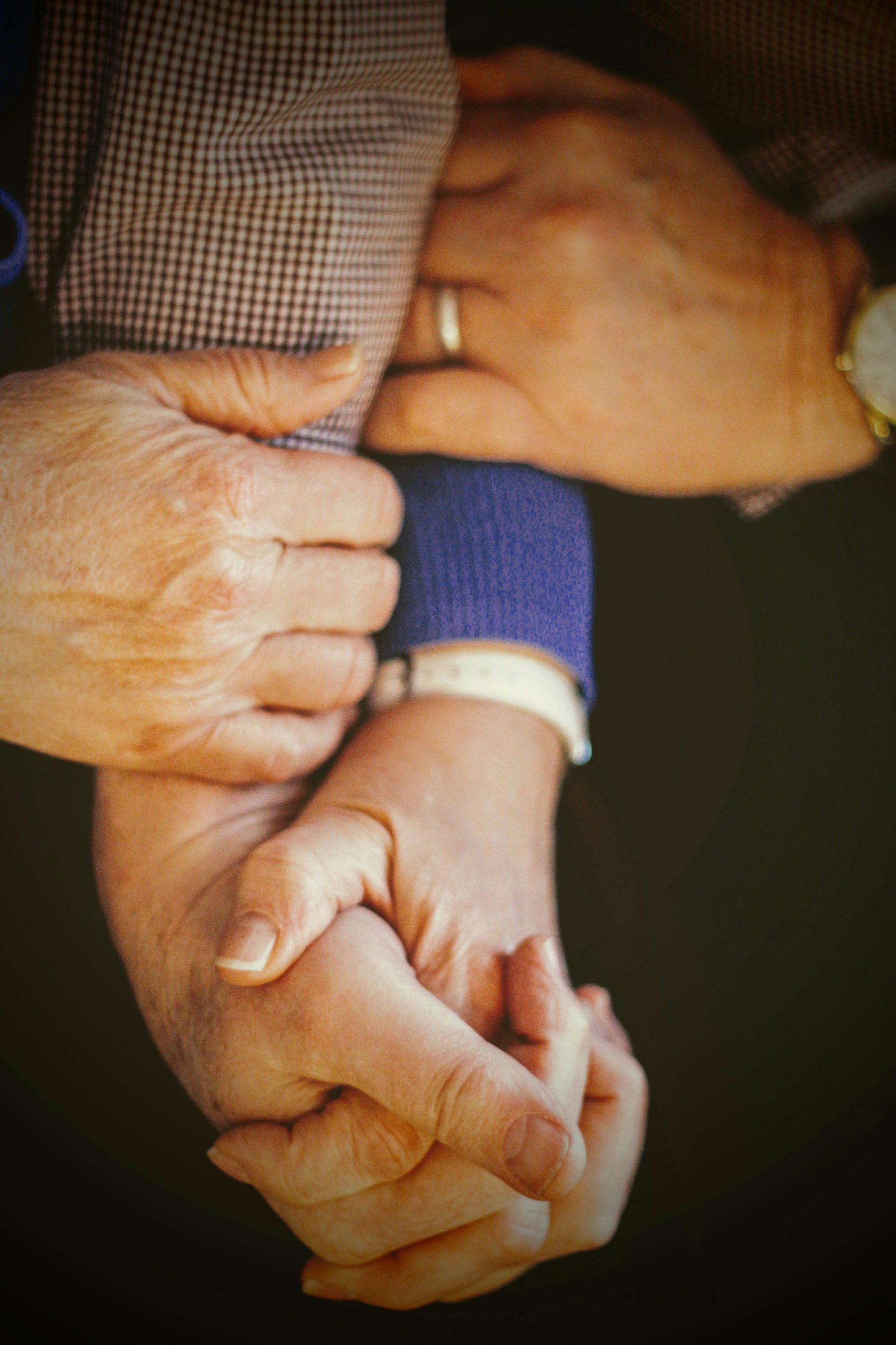#Culture
Coming Home To Malaysia: Reflections And Advice On Moving To A Muslim-Majority Country
Published

As someone whose ancestral home is Malaysia, I have had the blessing of living here for a decade. There’s something very special and healing about returning here because I felt very fragmented and disconnected from my cultural and spiritual heritage after living in the West for most of my life. I was born and raised in two secular cities (Singapore and Sydney) and am so grateful to be living in Malaysia; a thriving Muslim-majority country.
I’m sharing my experiences as a doorway for others who are curious about the benefits of moving to a Muslim country. After decades of living under siege in the West, and in the shadow of Islamophobia, it is such a relief to live safely in an unapologetically Muslim country.
Life In Sydney
I was born in Singapore, then moved to Sydney, Australia with my family when I was twelve years old. By the time I was in my late twenties, it was very much my home – despite all the stress that came with growing up as a visibly Muslim Malay woman. I experienced an entire range of Islamophobia and anti-Asian sentiment: from microaggressions at university like being told that I speak such good English, to getting yelled at at Central Station for wearing my hijab. I lived in fear of the next terrorist attack and prayed it wouldn’t be perpetrated by a Muslim, because of the inevitable fallout on hijabis like me, my mother, and other women like us.
Keep supporting MuslimMatters for the sake of Allah
Alhamdulillah, we're at over 850 supporters. Help us get to 900 supporters this month. All it takes is a small gift from a reader like you to keep us going, for just $2 / month.
The Prophet (SAW) has taught us the best of deeds are those that done consistently, even if they are small. Click here to support MuslimMatters with a monthly donation of $2 per month. Set it and collect blessings from Allah (swt) for the khayr you're supporting without thinking about it.
Living under siege felt like my normal mode of existence. Reading about the genocide of Muslims in different parts of the world was also my norm. Despite living in the West, Muslims like me were still murdered by white supremacists; e.g. the Christchurch mosque massacre in New Zealand or hatred-fuelled murders in Toronto. I coped by putting my trust in Allah 

I was still afraid, from time to time, but alhamdulilah, I remained committed to my hijab despite my fluctuating anxiety. I knew that even if I removed it out of fear of being attacked, I would never pass as white, and I would always be Asian. I refused to be frightened to the point of erasing my Muslim identity. Since childhood, I had a temper I was learning to control, so I channeled it into choosing to be proudly hijabi in a secular society that looked down on Muslims. At the same time, I could understand why Muslim women in the West wanted to be anonymous and did not shame or blame any Muslim woman for choosing that path instead, particularly when their mental health was at stake.
Moving To Malaysia
I first moved to Malaysia with my husband in late 2013/early 2014. We left our newlywed bubble so that we could keep my aging and widowed mother-in-law company. At first, I really missed the familiarity of my Sydney home and the proximity of my close family and friends.
The tropical heat felt unbearably hot and sticky. Even the mosquitos seemed to enjoy feasting on me as if they knew there was something unmistakably foreign in my blood. I felt self-conscious when I spoke in Malay and felt much more comfortable speaking in my heavily Australian-accented English. The end result was not great – some people thought I was putting on airs, while others just couldn’t understand what I was saying!
Over time though, I leaned in. I felt safe enough to take up space here. I became more confident and relaxed when I spoke Malay. I realized that for all my years in Sydney, I was living in a very exhausting, defensive mode of existence. It took time for me to unlearn those fears, and to realize what it is like to not live under a sense of existential threat.
Easy To Be Muslim
In Malaysia, I no longer have to fight to be Muslim. I can just be. Here, I can relax and focus on giving myself, my husband, and my children a strong spiritual grounding. I love how utterly normal being a professional working woman in hijab or even in niqab. I will never tire of hearing the adhan. I am so grateful for the easy access to delicious, affordable and halal food of every possible variety!

Family life [Patrick Boucher (unsplash)]
Alhamdulilah, in Malaysia, I can rest in the security that my husband, children and I are safe to be visibly Muslim, and we can enjoy the many perks of living in a society designed with us in mind.
Ramadan Training From Young
I am so happy that for my school-aged children, the norm is for Muslim children at school to start fasting from Year Two, even if it’s for just half the day. My daughter is in Year Three, and her friends and she bravely tried to fast for the entire day, mashaAllah. This is utterly unthinkable in Sydney, where even in Muslim schools, it’s far more common for children to be much older before attempting half-day fasts, let alone full-day fasts. My daughter and her friends are gaining such a solid, confident grasp of their Muslim identity. My daughter’s non-Muslim friends pack halal food so they can share each other’s food during recess. It’s so incredibly beautiful to see this societal cohesion and celebration of being Muslim.
Ramadan is such an exciting time here. In addition, Ramadan bazaars are filled with all manner of delicious foods, and even non-Muslims queue up. Even Muslims who might not be as devout are rejuvenated by the arrival of Ramadan, and make the extra effort to participate to attend prayers at the masjid for tarawih, and so on.
The biggest difference I can explain, in a nutshell, is how Islam is designed into the daily fabric of Malaysian life. Here, it is not only normal to be Muslim, it is beneficial.
Understanding Non-Muslims
Even amongst non-Muslim friends and neighbors, there is an understanding and awareness of Islam. “Selamat Hari Raya!” and “Selamat Hari Raya Haji!” are common greetings during Eid from Muslims and non-Muslims alike. We get public holidays for Eid too, which is absolutely wonderful.

Duit Raya [Nahrizul Kadri (unsplash)]
I still recall life in the West, where nothing would stop for Eid and life went on as usual. We had to carve out Eid for ourselves unless it fell on a weekend. There is no shortage of places to pray here as well as wudu facilities, which is a contrast to what I experienced growing up in Sydney. The more effort there is though to establish prayer in a country that doesn’t design for it, then the more reward, inshaAllah. My favorite prayer places were in the changing rooms in shopping malls in Sydney. In contrast, I am so grateful for the designated prayer rooms in malls in Malaysia and even at petrol stations.
Malaysia is also proudly pro-Palestine through every level of society, from the humble GrabFood driver who displays the Palestinian flag on his motorbike, to the celebrities and VIPs who post about Palestine on their Instagram accounts. Alhamdulilah, no employee is at risk of losing their job here for wanting the genocide in Palestine to stop.
Imperfection
Does it mean that it’s perfect here? No, of course not. This is the dunya, after all, and everlasting happiness awaits us only in Jannah. Despite the deep love for Palestinians shared by Malaysians, the sad reality is that Palestinian refugees – and other refugees from different parts of the world – struggle to live in Malaysia. As described in this article, “Malaysia has not ratified the Refugee Convention and lacks any legal framework or procedure for determining refugee status and providing recognition and protection to asylum seekers.”
On a personal note, I’ve had a steep learning curve to squash my very Western and entitled nafs! I’m learning, firsthand, the benefit of growing up with extended family, in a communal family home. It’s just much harder to adjust to this, as a grown woman in my thirties and forties, compared to my children, who grow up with this as their norm. Western individualism definitely rubbed off on me, and I’m still actively unlearning that and leaning more into Prophetic care and concern, reflected in Malaysian collectivism.
At the same time, I’ve realized it’s so important to still hold onto healthy boundaries. Not every aunty asking about my personal life has my best interests at heart, for example. Balance, as always, is key. For someone like me who is naturally introverted and values privacy, guests turning up unannounced at my extended family home used to stress me out, but now I’ve learned to welcome the barakah of visitors.
On a policy level, Malaysia struggles with issues of systemic racism against non-Malays, especially among impoverished communities that work on palm oil plantations. This can be a barrier to da’wah, especially when inexperienced da’wah workers end up belittling the faith of non-Muslims, which is not at all the Prophetic way of bringing others to Islam. There is so much work to be done for da’wah in Malaysia, and so much potential for conversion when done with compassion and adab.
The way Islam is formally taught can often be harsh, which often drives Muslim youth away from the deen. Islam is often more a cultural preference than an evidence-based belief, which can lead to complacency in this Muslim-majority country. This means that when Muslim Malaysian youth travel abroad and are culturally Muslim, they are at risk of being vulnerable to atheist arguments, unless their deen is fully grounded.
This is why I am so passionate about teaching youth (especially my own children) the evidence for the existence of God and the truth of Prophethood so that they can come to their own conclusions about the truth of Islam. Alhamdulilah, there are many other families like mine who are committed to learning the deen and teaching our children.
On a minor note, every now and then, we get water and electricity cuts. I used to be so stressed out when that happened but alhamdulilah, I’m used to them now – and so much more grateful for flowing water and uninterrupted electricity!
Missing Family Abroad
Despite my comfort in my ancestral home, I miss my loved ones in Australia. When I do visit, it is both familiar and uncomfortable. There are no in-built bidets in the public bathrooms, for example, so it’s back to using small and discreet toilet bottles. It’s back to getting stared at because I’m both Malay and in hijab. I go back to being extra watchful of my children because they are brown and Muslim – unless we’re in a suburb filled with other brown Muslim children.
It is also such a relief to be back in cool weather so I can enjoy going on long bush walks with my loved ones. My children absolutely adore the well-maintained and enormous playgrounds in Sydney. I love meeting up with my family again, and my old friends from my high school and university days. Best of all, I am always so, so happy to be back in my mother’s home, and enjoying her delicious homemade food.
But by the end of our Sydney whirlwind visit, I always end up missing the adhan and the comfort of living in a Muslim-majority country. It’s a relief to come home to Malaysia, despite leaving my loved ones in Sydney. It’s always so tough saying goodbye so that fuels my du’a for all of us to be reunited in Jannah for eternity, inshaAllah.
Returning To Sydney
In this current season of my life of birthing and raising my three small children, I am so grateful to be in Malaysia. My mother flew down in my last trimester to help me in my postpartum recovery for each of my three children. My mother-in-law, especially when she was younger and stronger, helped to look after my children so I could return to my part-time work and studies. We always had part-time helpers to take care of most of our household chores. I look back with so much gratitude at how much help Allah 

Taking care of elerly parents [PC: Joshua Hoehne (unsplash)]
While my children and I are thriving in Malaysia, we miss my mother, who still lives in Sydney. I hope to be able to be there for her when she gets older too, even if that means moving back to Sydney in the distant future. Just as I moved to Sydney when I was twelve, if Allah 
The difference is that I know, firsthand, the struggles of migrating to the West, and I hope and pray that my husband will be able to support our children. I don’t know what the future holds, and I must admit, I do feel nervous about moving back to the West after enjoying all the perks of being in Malaysia. Allah 
Moving To Malaysia
If you’re living in the West and thinking of moving to Malaysia, I hope and pray that Allah 
My advice is to do a lot of research and only move here when you have a solid job offer in hand, especially if you come here with your spouse and children. A tourist visa lasts for only three months, and it’s stressful to relocate everyone, and there’s no guarantee you will get a visa extension right away.
Investing in Malaysia as Your Second Home is another option.
When you migrate here, I recommend connecting with other expatriates to learn how to successfully navigate the culture shock – and the heat and humidity! Despite the many perks of living in Malaysia, it is not perfect here. There are cultural practices and norms that could stress you out, especially when it comes to bureaucracy. My policy is to practice gratitude, acceptance, and go with the flow.
Please note that my experiences are unique to myself and my lived experience, and this differs from person to person. We live in complex times and due to nation-state and citizenship issues, it’s not easy to migrate to a Muslim-majority country. If Allah 

That being said, sometimes, even after a successful migration to Malaysia, circumstances can change. Aging parents back in the West can call you back, and fulfilling that personal obligation of caring for elderly parents is so important. Allah 


Related:
– [Podcast] From The Maldives To Malaysia: A Shaykha’s Story | Shaykha Aisha Hussain Rasheed
– Quran Culture in Malaysia: Connecting Little Hearts To Islam
Keep supporting MuslimMatters for the sake of Allah
Alhamdulillah, we're at over 850 supporters. Help us get to 900 supporters this month. All it takes is a small gift from a reader like you to keep us going, for just $2 / month.
The Prophet (SAW) has taught us the best of deeds are those that done consistently, even if they are small. Click here to support MuslimMatters with a monthly donation of $2 per month. Set it and collect blessings from Allah (swt) for the khayr you're supporting without thinking about it.
After graduating from the University of New South Wales, Ustādha Raidah studied Islamic Sciences with traditionalist teachers abroad, specializing in Shāfiʿī jurisprudence. She completed her Diploma of Counseling and worked for the SeekersGuidance Q&A service. She continues her studies with Shaykha Mariam Bashar. She currently works with Shaykh Hamza Karamali and is a certified Basira Education Why Islam Is True teacher. She teaches Islamic Studies at KL Kuttāb, a holistic weekend program in KL, Malaysia.


30 Nights with the Qur’an: A Ramadan Series for Muslim Teens

Keep Zakat Sacred: A Right Of The Poor, Not A Political Tool

Far Away [Part 9] – Crane Dances In The River

From The MuslimMatters Bookshelf: Ramadan Reads For 1447 AH

Courting The Crosswinds: The Tragedy Of Saif Al-Islam Qaddafi

[Podcast] Should Muslims Ally with Conservatives or Progressives? | Imam Dawud Walid

How to Make this Ramadan Epic | Shaykh Muhammad Alshareef

[Podcast] The Parts of Being an Imam They Don’t Warn You About | Sh Mohammad Elshinawy

[Podcast] Guardians of the Tradition: Muslim Women & Islamic Education | Anse Tamara Gray

Iron Principle Under Pressure: A Profile Of Naledi Pandor

[Podcast] Guardians of the Tradition: Muslim Women & Islamic Education | Anse Tamara Gray

How to Make this Ramadan Epic | Shaykh Muhammad Alshareef

[Dhul Hijjah Series] Calling Upon the Divine: The Art of Du’a (Part 1)

IOK Ramadan 2025: Four Steps | Sh Zaid Khan

IOK Ramadan 2025: Do Your Best | Sh Zaid Khan
MuslimMatters NewsLetter in Your Inbox
Sign up below to get started
Trending
-
#Current Affairs4 weeks ago
[Podcast] Should Muslims Ally with Conservatives or Progressives? | Imam Dawud Walid
-
#Current Affairs1 month ago
Op-Ed: From Pakistan To Gaza – Why Senator Mushtaq Ahmad Khan Terrifies Power And Zionism
-
#Culture1 month ago
The Muslim Book Awards 2025 Winners
-
#Islam3 weeks ago
How to Make this Ramadan Epic | Shaykh Muhammad Alshareef








